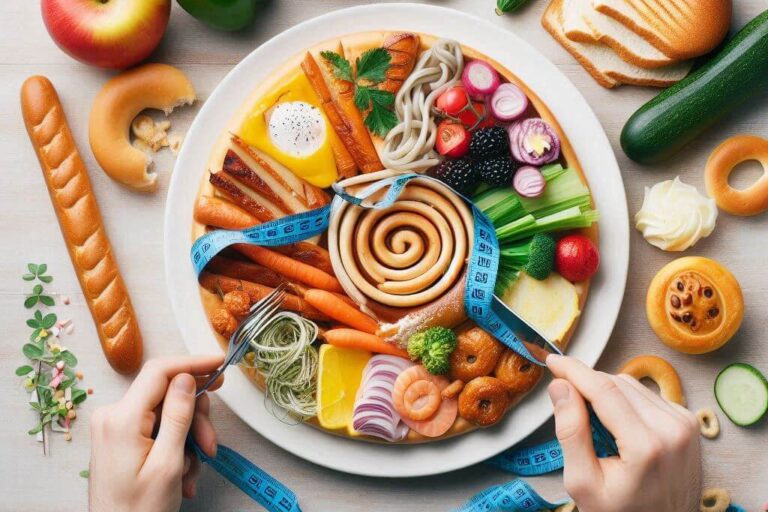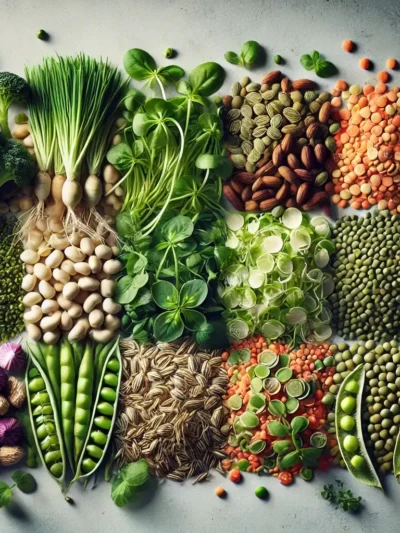Unraveling the Mysteries of Your Eating Habits:
Embark on a journey of self-knowledge to uncover the secrets of your eating habits!
For a few days, become a detective of your own health and record everything you eat and drink, from main meals to snacks and “nibbles” in between.
This investigation will give you a clear insight into your eating patterns, revealing:
- Emotional triggers: Identify when you eat out of emotion, such as stress, anxiety, or sadness. This information will help you develop tools to deal with these emotions in a healthier way, preventing them from leading you to make less healthy food choices.
- Less healthy choices: Figure out which foods you eat most often that aren’t helping you achieve your health goals. This step is crucial to identifying areas that need to be changed and directing you toward more nutritious options.
- Hungriest times: Pay attention to the times when you feel hungrier. This information will help you plan your meals and snacks strategically, preventing you from going long periods without eating and encouraging you to make healthier choices when hunger strikes.
Set Realistic Goals: The Treasure Map to Success:
Instead of vague goals like “lose weight,” how about being more specific and detailing what you really want to achieve? For example, you could set a goal to:
- Eat 3 servings of vegetables a day: This goal encourages you to include more nutrients and fiber in your diet, providing you with more satiety, helping you control your weight and protecting you from diseases.
- Reduce added sugar intake by 50%: This change helps you reduce your consumption of empty calories, protects you from developing chronic diseases such as diabetes and gives you more energy and disposition.
- “The importance of plant-based diets for human health and environmental sustainability” (American College of Cardiology)
Remember, specific goals give you clear direction, help you visualize your progress, and motivate you to keep moving forward.
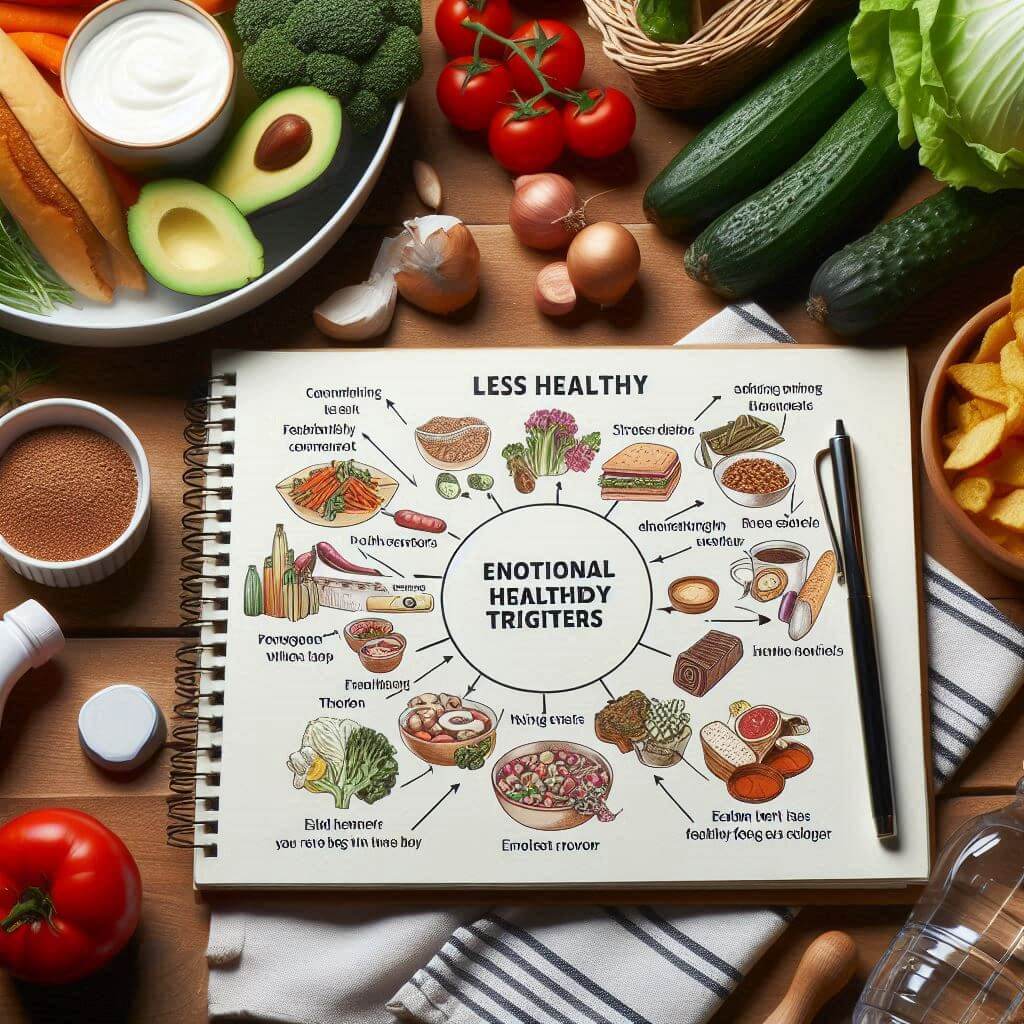
Small Changes: Building Lasting, Healthy Habits:
Avoid radical changes that can discourage you at the beginning of your journey. Start with small changes, such as:
- Swap soda for water: This simple change helps you reduce your consumption of sugar and empty calories, hydrating you and giving you more energy.
- Add more vegetables to your meals: Vegetables are rich in fiber, vitamins and minerals that protect you from diseases, make you feel fuller and provide you with more energy.
- Choose healthy snacks like fruits and nuts: These snacks provide you with essential nutrients, keep you feeling full and help you control your hunger until your next meal.
Prioritize Whole Foods: The Foundation of Your Diet and the Key to a Healthier Life:
Choose fruits, vegetables, vegetables, whole grains, proteins thin and healthy fats (avocado, olive oil, nuts and seeds). These foods:
- They provide the nutrients your body needs to function properly: Vitamins, minerals, fiber and other essential nutrients protect you from disease, strengthen your immune system and contribute to your overall well-being.
- They give you more satiety: The fiber in whole foods helps you feel fuller for longer, helping you control your weight and preventing you from overeating.
- They help you control cravings for less healthy foods: Nutrient-rich foods give you more energy and stamina, helping you have more control over your cravings and leading you to make healthier food choices.
Meal Planning: Organization Leads to Success:
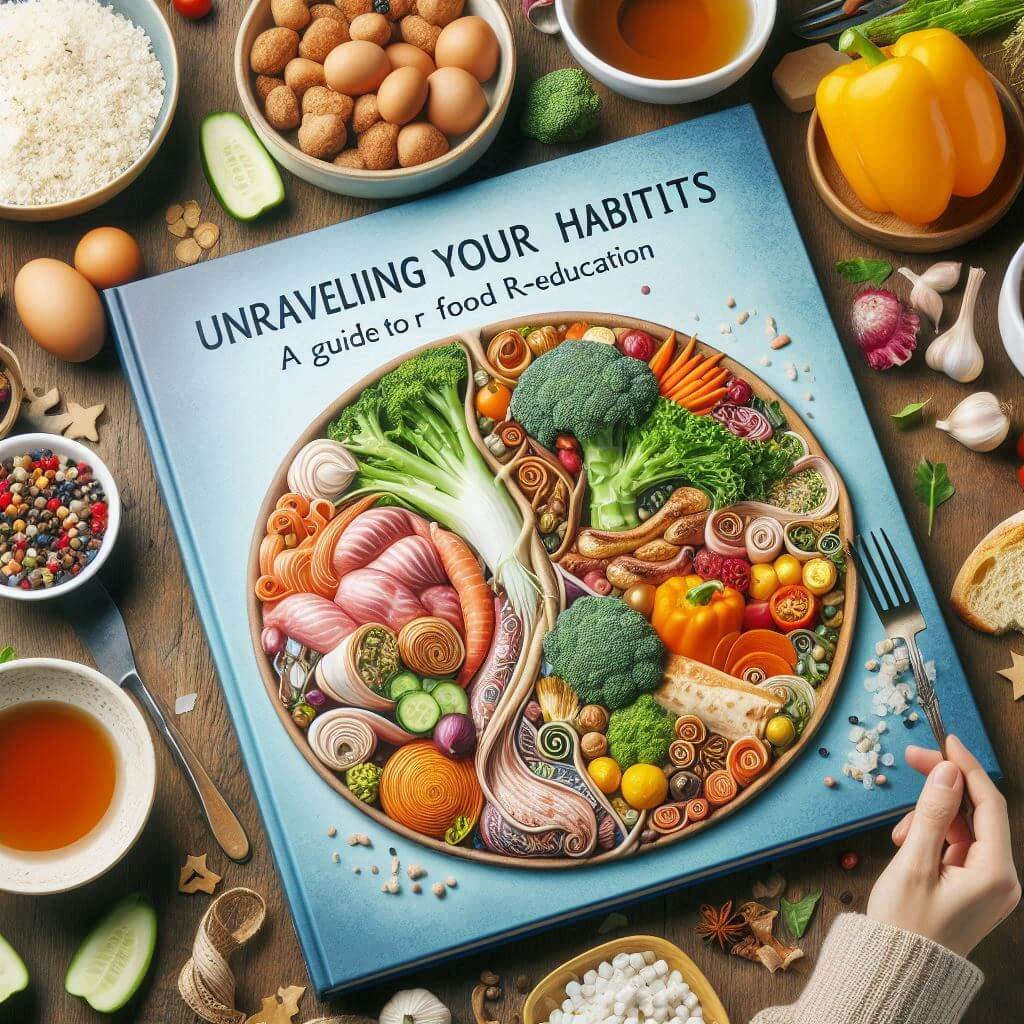
Organize your shopping and prepare your meals in advance so that you always have nutritious and delicious options available. This helps you:
- Avoid the temptation of processed foods: Having healthy options at home prevents you from turning to less healthy foods when hunger strikes.
- Control portions: Planning your meals helps you control the portions you consume, preventing you from overeating.
- Save time and money: Planning your shopping helps you avoid unnecessary expenses and allows you to buy fresh, quality food.
Food Reeducation is a Personal Journey
Every body is unique, and what works for one person may not work for another. It is essential to find a balance that is sustainable and enjoyable for you.
Overcoming Challenges and Staying Focused
THE nutritional reeducation It’s not a sprint, but a marathon. It’s normal to face obstacles and moments of discouragement. Here are some strategies to overcome challenges:
- Seek support: Share your goals with friends, family, or a healthcare professional. Having people who support you can make all the difference.
- Be kind to yourself: Mistakes happen. Don't beat yourself up, learn from them and move on.
- Find pleasure in food: THE food should be a source of pleasure. Try new recipes, flavors and textures.
- Prioritize sleep: Adequate sleep helps regulate hunger hormones and improves decision making.
- Manage stress: Stress can lead to binge eating. Find relaxation techniques like meditation, yoga or physical exercises.
Mindful Eating: Savor Every Moment
In addition to nutritional aspects, mindful eating is essential for a healthy relationship with food. Practice
- Eating without distractions: Pay full attention to your meal, avoiding screens and other distractions.
- Listen to your body's signals: Pay attention to hunger and satiety signals.
- Savor every bite: Enjoy the flavors, textures and aromas of food.
Dining Out with Balance
Eating out doesn't have to be the enemy of nutritional reeducation. Follow these tips:
- Choose restaurants with healthy options: Many establishments offer light and nutritious dishes.
- Choose to share dishes: This is a great way to experiment with different flavors without overdoing it.
- Balance your meal: Combine lean proteins, complex carbohydrates and vegetables.
The Importance of Hydration
Drinking water regularly is essential for health. Benefits include:
- Hunger control: Water can help reduce feelings of hunger.
- Improved digestion: Water aids in the digestive process.
- Skin hydration: Keeps skin healthy and radiant.
Physical Exercise: An Essential Complement
Physical activity is a powerful ally in nutritional reeducation. Benefits include:“The role of exercise in a healthy lifestyle”
- Calorie burning: Helps control weight.
- Improvement of metabolism: Increases metabolic rate.
- Stress reduction: Releases endorphins, providing well-being.
Remember: The most important thing is to find a lifestyle that you can maintain in the long term. Small, consistent changes are more effective than big, drastic changes.
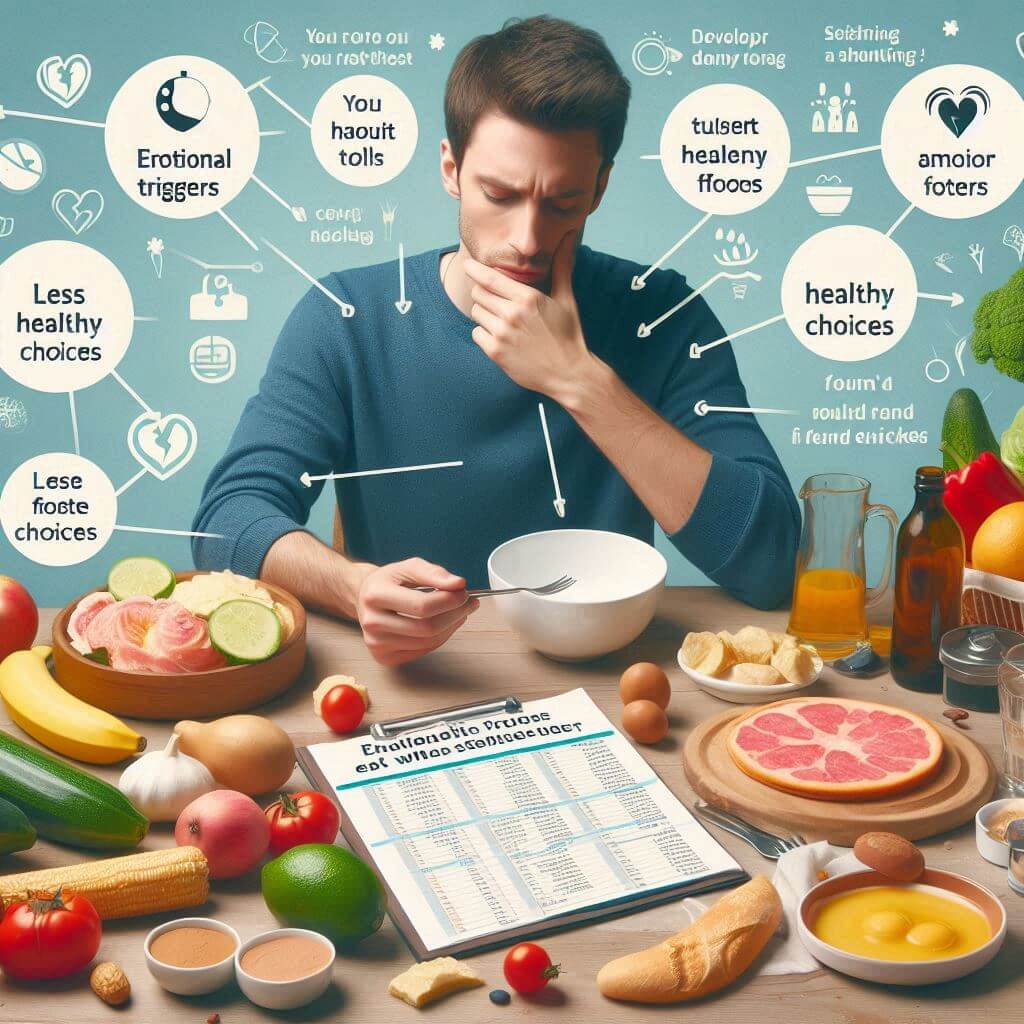
Frequently Asked Questions
| Question | Response |
|---|---|
| What is nutritional reeducation? | Nutritional re-education is the process of adjusting and improving your eating habits to promote better health and achieve specific goals, such as weight control and improved nutrition. |
| How can I identify the emotional triggers that affect my eating? | Keep a record of your meals and drinks, and note times when you eat out of emotion, such as stress or sadness. Identifying these patterns can help you develop strategies for dealing with these emotions in a healthier way. |
| What are some examples of realistic goals for healthy eating? | Examples include eating 3 servings of vegetables per day, reducing added sugar intake by 50%, or swapping soda for water. Specific goals help you stay focused and visualize progress. |
| How can I make small changes to my diet? | Start with simple substitutions, like swapping soda for water, adding more vegetables to your meals, and opting for healthy snacks like fruits and nuts. Small changes can help build lasting habits. |
| Why is it important to prioritize whole foods? | Whole foods provide essential nutrients, increase satiety, and help control cravings for less healthy foods. They are essential for a balanced and healthy diet. |
| How can meal planning help my diet? | Planning your meals helps you avoid processed foods, control portions, and save time and money. Having healthy options available makes it easier to stick to a balanced diet. |
| What to do if you encounter challenges in re-educating your eating habits? | Seek support from friends, family, or health professionals, be kind to yourself, find pleasure in food, and manage stress. Overcoming challenges is part of the process of reeducating your eating habits. |
| How important is mindful eating? | Mindful eating involves paying full attention to your meals, savoring each bite, and listening to your hunger and fullness cues. This promotes a healthier relationship with food and improves digestion and satiety. |
| How to deal with food when dining out? | Choose restaurants with healthy options, share dishes to experience different flavors without overdoing it, and balance your meal by combining lean proteins, complex carbohydrates, and vegetables. |
| Why is hydration important in the diet? | Drinking water regularly helps control hunger, improves digestion, and keeps your skin healthy. Proper hydration is essential for overall well-being and supporting a balanced diet. |
| What is the role of exercises physical in nutritional reeducation? | Physical activity helps burn calories, improves metabolism and reduces stress. It is an essential complement to a healthy diet and contributes to weight control and general well-being. |

